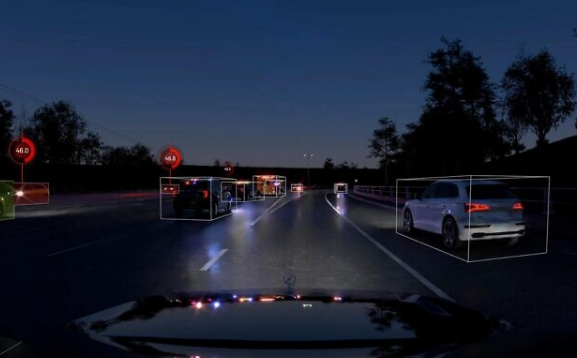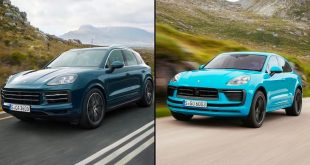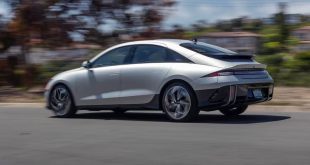Chip maker sets up engineering teams to work on system-on-chip, software for self-driving vehicle capabilities as part of US semiconductor’s expanded R&D operations
US gaming and computer graphics giant Nvidia has been expanding its R&D operations in Israel and recently established two engineering units to develop software and hardware solutions for Nvidia’s autonomous driving programs.
Nvidia set up a hardware development group, SoC Group, to work on a system-on-chip for self-driving vehicles and a second team, SW AV Group, to develop software as part of Nvidia’s Drive platform for autonomous vehicles. Nvidia Drive solutions are being incorporated into future autonomous vehicle models to be rolled out by automakers like Volvo, Chinese electric vehicle manufacturer NIO, Mercedes-Benz, and Jaguar Land Rover.
Both groups will focus on autonomous vehicles’ planning and decision-making processes, which Nvidia described in the announcement as among “the most significant challenges in the field of autonomous vehicles.” Such vehicles should be “receiving the information from dozens of sensors and computer vision systems, planning the trip and making decisions based on that information, using advanced algorithms and artificial intelligence technologies.”
A simulated photo of the Nvidia Drive system at night. (Nvidia)
US gaming and computer graphics giant Nvidia has been expanding its R&D operations in Israel and recently established two engineering units to develop software and hardware solutions for Nvidia’s autonomous driving programs.
Nvidia set up a hardware development group, SoC Group, to work on a system-on-chip for self-driving vehicles and a second team, SW AV Group, to develop software as part of Nvidia’s Drive platform for autonomous vehicles. Nvidia Drive solutions are being incorporated into future autonomous vehicle models to be rolled out by automakers like Volvo, Chinese electric vehicle manufacturer NIO, Mercedes-Benz, and Jaguar Land Rover.
Both groups will focus on autonomous vehicles’ planning and decision-making processes, which Nvidia described in the announcement as among “the most significant challenges in the field of autonomous vehicles.” Such vehicles should be “receiving the information from dozens of sensors and computer vision systems, planning the trip and making decisions based on that information, using advanced algorithms and artificial intelligence technologies.”
Nvidia’s autonomous vehicles department is led by Rotem Aviv, the company’s Israeli-born, California-based Director of Engineering, Autonomous Vehicle Software, who heads a global team with dozens of workers in the US, Europe, China, and now Israel, the company said.
Nvidia currently employs over 3,000 workers in seven R&D centers across Israel and earlier this year announced the addition of another 1,000 engineers to existing teams. The new hires will support Nvidia’s R&D products and services being developed in Israel, including high-speed networking and HPC (high-performance computing) technologies, DPU (data processing units) design, artificial intelligence research, and software architecture.
Much of Nvidia’s R&D engine in Israel rests on teams acquired by the semiconductor giant through its 2020 purchase of Israel’s Mellanox Technologies Ltd., a maker of high-speed servers and storage switching solutions used in supercomputers globally, for a massive $7 billion. The acquisition added about 2,000 employees to Nvidia’s R&D activities in Israel, its largest outside of the US.
The R&D locations include Yokne’am, the headquarters of Mellanox, Tel Aviv, Jerusalem, Ra’anana, and Beersheba.
Earlier this year, Nvidia also established a new design and engineering group in Israel that is leading the development of next-generation CPUs (central processing units) geared toward artificial intelligence, robotics, autonomous vehicles, and Nvidia’s new platform Omniverse, which allows for virtual world simulations.
Alongside its R&D operations, Nvidia also runs the Nvidia Inception Program for Startups, an accelerator that works with hundreds of early-stage companies, including 600 Israeli startups, and the Nvidia Developer Program, which allows free access to Nvidia’s offerings for developers.
The US firm was founded in 1993 by Jensen Huang, Chris Malachowsky, and Curtis Priem as a graphics chip company and invented the graphics processing unit (GPU).
Nvidia has a market cap of about $356 billion (as of November 2022), compared to $117 billion (also as of November 2022) for competitor Intel Corp., and has replaced the latter as the largest US chipmaker, and the second largest in the world, after Taiwan’s TSMC.
Intel’s autonomous driving subsidiary, Jerusalem-based Mobileye, is a world leader in the self-driving systems space with the largest fleet of autonomous vehicles in testing across the globe. Mobileye, acquired by Intel in 2017 for $15.3 billion, received a warm Wall Street welcome late last month.
Intel also took a step toward bolstering its semiconductor capabilities earlier this year with the intended acquisition of Israel’s Tower Semiconductor for $5.4 billion. The move adds to Intel’s previous acquisition, in 2019, of Israeli company Habana Labs in a bid to boost its artificial intelligence capabilities and strengthen its portfolio of AI-based accelerators for the cloud and data centers, spaces dominated by Nvidia.
Amid a sustained market downturn this year and plummeting revenue in the third quarter of 2022, Intel announced mass layoffs and spending cuts of some $3 billion annually starting next year. Nvidia said in August that there were no planned job cuts just yet.
Both Nvidia and Intel have R&D centers in Israel and compete for the same pool of talent.








